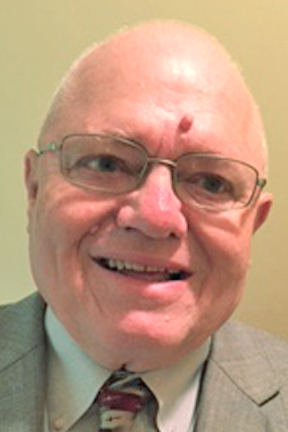Bible Studies for Life: June 4
Jethro and Moses • Exodus 18:9-11, 14-21
By Don Hicks

Our lesson today is an account of Moses’ father-in-law mentoring him. The dynamics of a father-in-law telling his son-in-law what to do might lead to an interesting peek into family dynamics.
This lesson begins a six week study on mentoring. It is wise to begin by trying to understand mentoring. Mentoring is not a Biblical term. Tal Davis, the writer of the commentary on our Scripture study in LifeWay’s Advanced Bible Study, points out: “Mentoring is never explicitly mentioned in Scripture, but Jesus exemplified the principles as He walked with His disciples.”
The most commonly used synonym for mentoring used in the Scriptures is “discipling.” As the title of our unit of study reminds us, mentoring in Christian use is “Investing in Others.”
In the Great Commission, Jesus’ last words to his disciples were: Go, therefore, and make disciples of all nations, baptizing them in the name of the Father and of the Son and of the Holy Spirit, teaching them to observe everything I have commanded you (Matthew 28:19-20a CSB).
The application of mentoring has to be very diversified and adapted to each person in which you are investing. Let’s look at this first mentoring relationship in this series. As already mentioned, the two individuals whose relationship we are studying this week are Moses and Jethro.
Exodus 18:1 tells us that Moses’ father-in-law was the priest of Midian. Robert L. Cate in the Exodus volume of Broadman Press’ Layman’s Bible Book Commentary writes that Jethro was a priest descended from Abraham.
Cate emphasizes this as partial explanation for Jethro’s interest in and excitement about God’s miraculous delivery of the Hebrews from Egyptian slavery.
Jethro brought Moses’ wife Zipporah and his sons Gershom and Eliezer back to Moses where he was camped at the mountain of God. He [Jethro] sent word to Moses, “I, your father-in-law Jethro, am coming to you with your wife and her two sons” (Exodus 18:6 CSB).
In his commentary Cate writes: “We do not know when or why Moses had sent his wife and family away. It is usually suggested that he had sent them back from Egypt when he began his major conflict with Pharaoh so that they would be protected.”
Whatever the reason, Jethro was very fascinated when Moses told him what Yahweh had done to protect and provide for the Hebrew people.
Jethro rejoiced over all the good things the LORD had done for Israel when he rescued them from the power of the Egyptians. “Blessed be the LORD,”Jethro exclaimed, “Now I know that the LORD is greater than all gods, because he did wonders when Egyptians acted arrogantly against Israel” (Exodus 8:9-11 CSB).
Then Jethro and Moses brought a burnt offering and Aaron came with the elders of Israel to feast and worship. Notice Jethro and Moses were carefully worshiping the “I Am,” the one and only true God.
The morning after the feast and worship, Jethro began looking for Moses. When he found Moses, Jethro was amazed by what he found. This scene led to the mentoring event that is the heart of the truth we are studying today.
Remember the title of our unit of study is, “Mentoring: Investing in Others.” Investing in others in love is a key theme of both the Old and New Testaments. The Apostle Paul emphasizes the importance of love in our interaction with others in his letter to the church at Ephesus when he wrote: But speaking the truth in love, let us grow in every way into him who is the head — Christ (Ephesians 4:15 CSB).
What did Jethro see that caused him to feel love required him to offer suggestions to Moses for change? The Message paraphrase tells about the scene this way: People were standing before him [Moses] all day long, from morning to night. When Moses’ father-in-law saw all that he was doing for the people, he said, “What’s going on here? Why are you doing all this, and all by yourself, letting everybody line up before you morning to night?” (Exodus18:13-14 CSB).
Then, Jethro suggested dividing these responsibilities among able men, God-fearing, trustworthy, and hating dishonest profit. Place them over the people as commanders of thousand, hundreds, fifties, and tens (Exodus 18:21 CSB).
It worked well for Old Testament Israel. The men who wrote the United States Constitution knew this teaching from the Old Testament and followed it in the federal court system – district courts, then circuit courts of appeal, and lastly the Supreme Court.
We still need to choose able men, God-fearing, trustworthy, and hating dishonest profit (Exodus 18:21).
Hicks is missions director for Jasper Association in Bay Springs. He may be contacted at donaldwhicks@gmail.com.